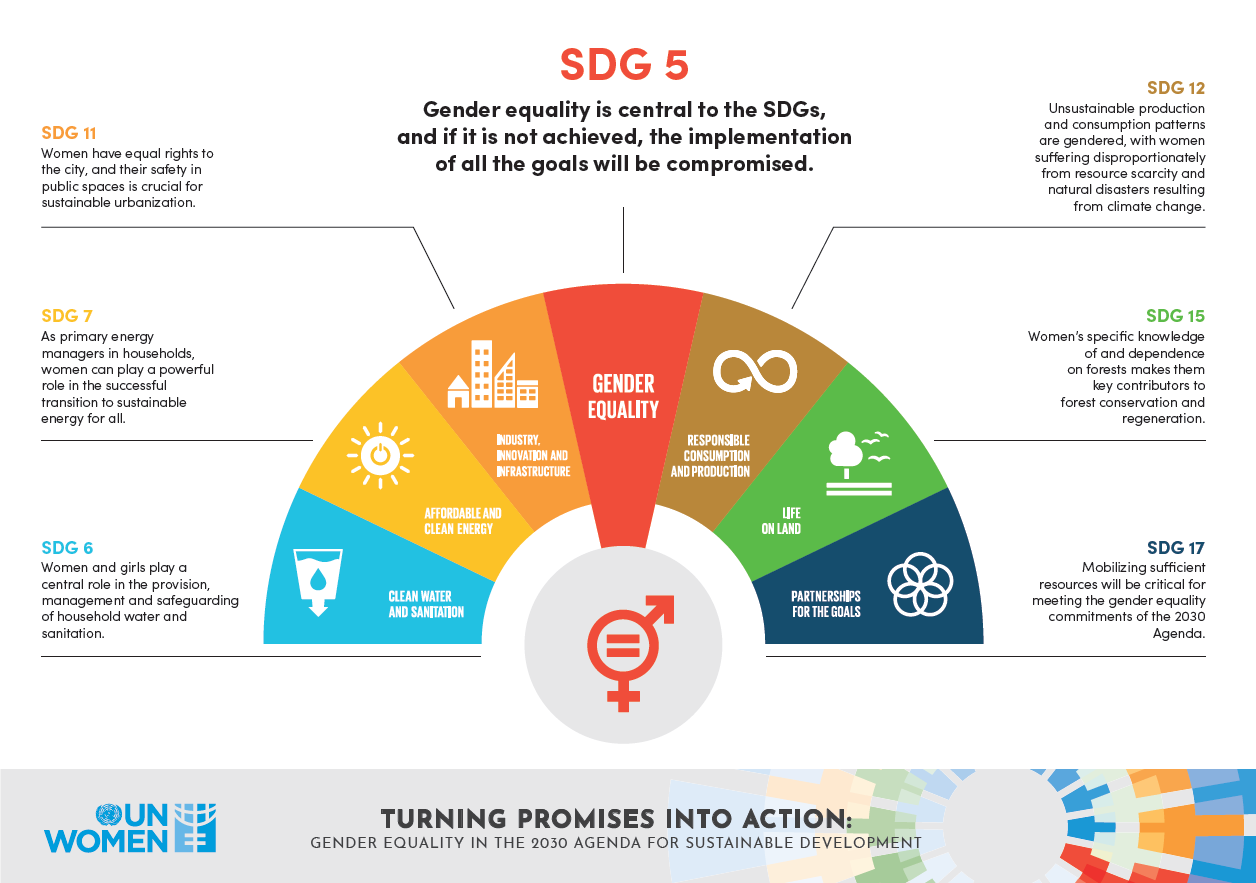Why the world needs to invest in female climate entrepreneurs

Women are more affected by climate change than men, and yet when it comes to technological solutions their voices are absent.
Image: Lewis Parsons
Stay up to date:
Education, Gender and Work
- Women are more affected by climate change than men, and yet innovation and entrepreneurship in this area is male-dominated.
- Female entrepreneurs face many obstacles to success in "greentech", including access to capital and structural discrimination.
- We can support the development of female entrepreneurs using accelerators and incubators and recruiting more women into the tech and banking sectors.
In the fight against climate change, entrepreneurship and innovation – known as "greentech" – are essential. Women are more affected by climate change than men, and yet greentech is currently a male-dominated field; in Canada, only 1 in 10 greentech business founders are women and only 19% of greentech startups have at least one female founder. When it comes to creating climate solutions, the female perspective is sorely lacking.
Investing in female entrepreneurs would generate higher returns for society as a whole, as women invest more of their income in their families compared to men. And as female-founded businesses tend to employ 2.5 times more women than male-founded businesses, empowering female entrepreneurs would also mean that more women could access job opportunities.
Female entrepreneurs are more likely than their male counterparts to innovate to address social needs, and women also score better than men in key skills such as leadership, problem-solving and innovation. Venture capital funding in climate tech is currently growing five times faster than the overall venture capital funding, indicating the high level of demand for this area of innovation. If women were able to access positions of leadership in this field, it would help to create wealth and reduce the gender wealth gap.
Challenges faced by female entrepreneurs
Access to capital is a key challenge faced by female entrepreneurs, with evidence showing that they are discriminated against by banks. In 2017, only 2% of venture capital funding in the US went to all-female-founded startups. A study by Harvard, MIT and Wharton School showed this gender bias: when the same idea was pitched by a male and a female voice, two-thirds of investors picked the male voice. This bias could be a product of the fact that 88% of decision-makers in venture capital firms are men.
Women face other disadvantages, too. In Asia and the Pacific, studies have shown that women do almost four times more unpaid care work than men, which means they have less time and energy to reskill, work extra hours and network. Greentech is also STEM-oriented and the STEM sectors are dominated by men with only 5% of leadership positions in the UK tech sector held by women. The problem starts at the education level, with only 3% of women in the UK saying a career in tech is their first choice. The lack of female role models is also an obstacle for young greentech entrepreneurs.

How can we address the gender disparity in climate entrepreneurship?
1. Incubators and accelerators
Many startups fail at the initial stages. Incubators and accelerators can provide mentoring, resources, space, networking opportunities and access to capital. Women often lack networking opportunities and joining accelerator programmes can allow them to meet key stakeholders. Climate startups can face unique challenges, such as the return on investment being long term, and changing government regulations and policies. Accelerator programs can help female entrepreneurs secure valuable advice and support to overcome these challenges.
2. A drive to recruit women in the tech and green sectors
Many entrepreneurs begin by working in a company, and later start a business based on their experience. If the greentech sector employs more women, they will build experience and confidence to start their own businesses. In the US, only 24% of workers in the tech sector are female. At the greentech giant Tesla, 83% of leadership positions are held by men.
3. A drive to appoint more women to the boards of venture capital firms and banks
Only 9% of the venture capitalists investing in tech startups are women, less than 2% of bank CEOs are women, and only 5.3% of board chairs globally are held by women. Having more women in these positions would help to minimize unconscious gender bias. Deloitte’s Board Ready Women is a commendable initiative that looks to support women who aspire to serve on boards of public companies. Female participants get advice from experienced board members, help in developing their board profiles and important networking opportunities.
Don't miss any update on this topic
Create a free account and access your personalized content collection with our latest publications and analyses.
License and Republishing
World Economic Forum articles may be republished in accordance with the Creative Commons Attribution-NonCommercial-NoDerivatives 4.0 International Public License, and in accordance with our Terms of Use.
The views expressed in this article are those of the author alone and not the World Economic Forum.
Forum Stories newsletter
Bringing you weekly curated insights and analysis on the global issues that matter.
More on Climate ActionSee all
Tom Crowfoot
August 14, 2025
Sikander Bizenjo and Eric Shahzar
August 14, 2025
Tom Crowfoot
August 12, 2025
Luis Antonio Ramirez Garcia
August 11, 2025




